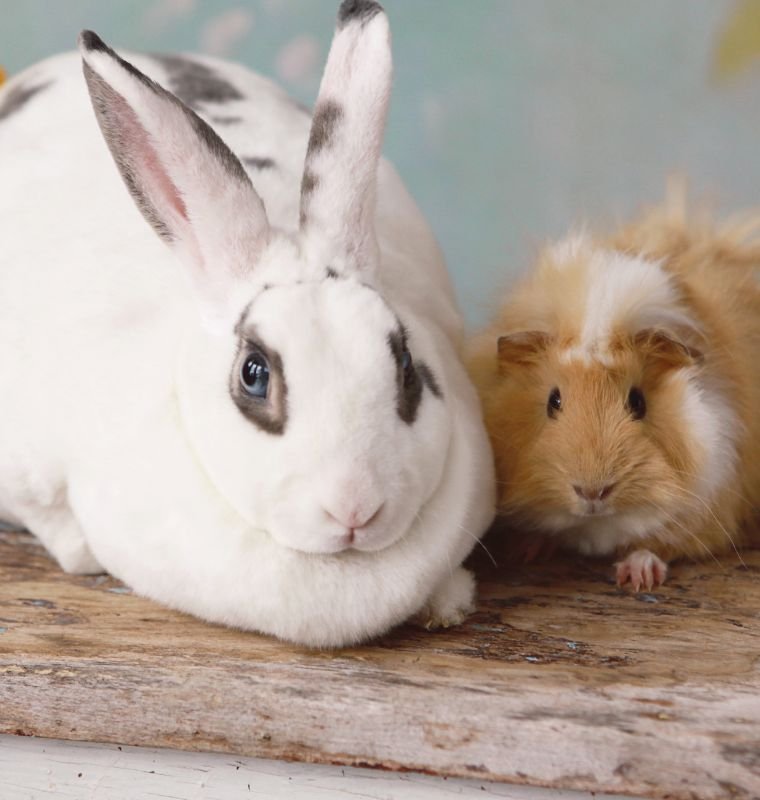
Importance of Dental Care for Rabbits and Rodents
Because rabbit teeth grow throughout their lives, maintaining their dental health is an important part of keeping any rabbit healthy and happy!
In this blog, we will discuss how to keep rabbits and rodents’ teeth healthy and how we can prevent dental diseases to occur.
What can a vet do for a rabbit/guinea pig?
We provide primary guinea pig and rabbit veterinary care at Al Barsha Veterinary Clinic, including routine and emergency dental exams and filings. Our veterinarian, who specializes in small mammals such as rabbits and rodents, ensures that your pets are properly cared for.
What are the factors that affect dental wear in Rabbits?
- Diet: Fibrous diet allows for abrasion during the chewing cycle.
- Food intake duration: the amount of time a rabbit spends chewing is likely to be more important than the hardness of the food.
- Conformation: rabbits with dental disease are less able to chew normally, so tooth wear is less effective.
- Age: Growing rabbits have a high demand for resources such as calcium and phosphorus; limiting intake has an impact on dental growth.
- Pregnancy: the metabolic needs of developing fetuses affects dental growth.
What are the symptoms of Dental Disease in Rabbits?
Rabbits very commonly develop dental diseases, and owners often are not aware of these problems until the disease is advanced. Owners may notice their pet dropping food from its mouth, exhibiting hypersalivation, having a selective appetite for soft foods (rather than eating hay), or even having a decreased appetite in advanced conditions. Owners usually notice an overgrowth of incisors (front teeth) or even discharge from the eyes due to compression of the tear ducts from overgrown tooth roots.

How to diagnose dental problems in Rabbits?
The only way to diagnose dental problems in rabbits is through an oral examination using an otoscope in addition to taking x-rays of the skull to see the tooth roots (under sedation).
Dental diseases include:
– Overgrowth of the incisors
– Malocclusion
– Overgrown points or sharp spikes on the edges of teeth can cut and injure the tongue, cheeks, or gums.
– Root canal inflammation, etc.
How to Treat Dental Disease in Rabbits
Once a rabbit develops a dental problem, it often necessitates surgery to correct the problem, and many rabbits require lifelong treatment with repeated teeth trimming by a veterinarian under anesthesia of both front and back teeth. When an abscess is present, more extensive surgery is required to remove infected teeth and dead bone. Rabbits with recurrent dental disease may require a repeated antibiotic, anti-inflammatory, and supplemental syringe feeding treatments, and some may require repeated dental surgery to manage, rather than cure the problems.
How to take care of your rabbit’s/rodent’s teeth?
While rabbits’ teeth do not need to be brushed or cleaned professionally like cats’ and dogs’ teeth, they do need to be checked at least annually by a veterinarian.
You should also do the following:
- Offer your rabbit a high-fiber diet of hay and leafy greens to promote chewing and wear of the teeth.
- Limit pellet feeding per day.
- Monitor your rabbit for signs of dental disease, like decreased or selective appetite, increased salivation, eye discharge, or jaw swelling.
Read more about Rabbits and Guinea Pigs Veterinary Care
Written by: Dr. Marie Thérèse Alkassis, ABVC Veterinarian
